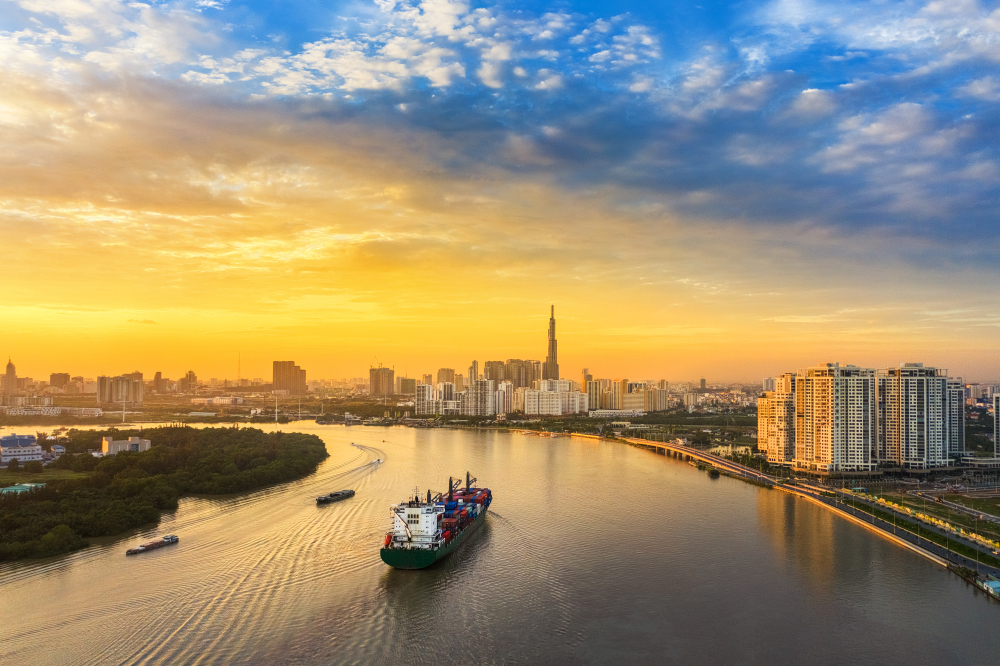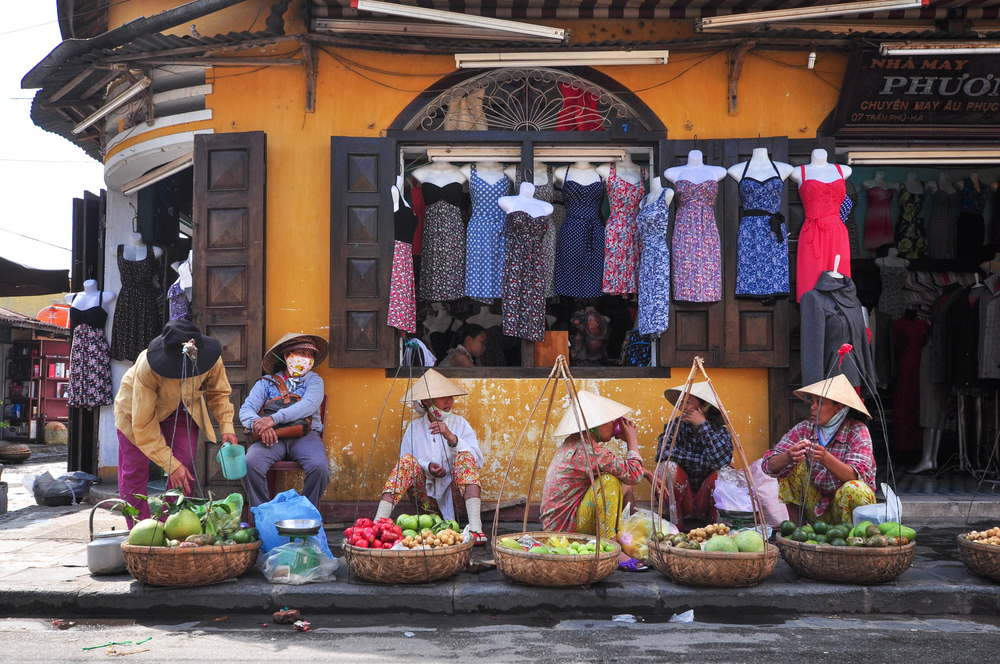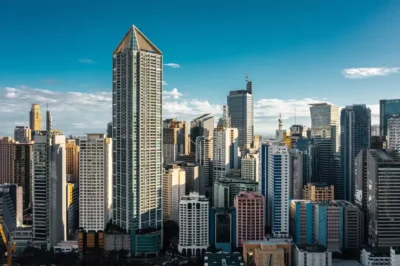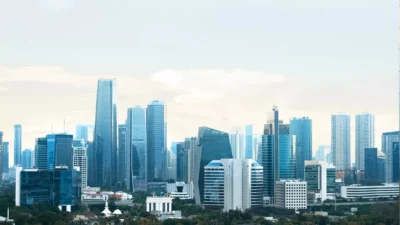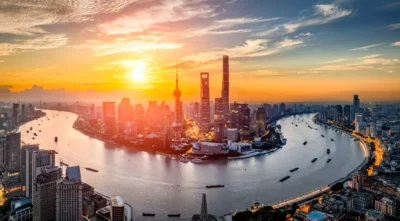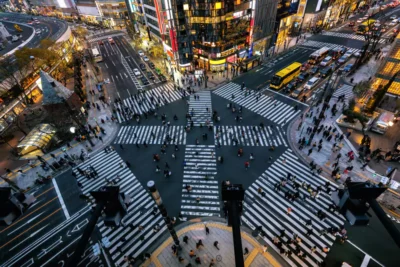Thundering Vietnamese economy electrifies property seekers
With its roaring economy providing a boost to sectors ranging from exports and property to tourism and hospitality, Vietnam continues to bask in the warmth of investor confidence

A glorious sun spills over Ho Chi Minh City’s skyline, casting a soft gold light on the Saigon River as another frantic morning begins in one of Southeast Asia’s most industrious cities. The scene is fitting. Ho Chi Minh City, along the rest of the country, is basking in the glow of Vietnam’s thundering economy.
“We’re having a good day in the sun,” says Troy Griffiths of Savills Vietnam. Last year Vietnam’s growth surged 7.08 percent, the highest for 11 years, cementing the country’s place among the world’s fastest growing economies. “Office markets are booming, they are some of the tightest markets in the region… hospitality is booming… retail is booming… Pretty much every asset class is going very, very well,” Griffiths adds.
Vietnam is expected to grow at least 6.8 percent in 2019. For the Minister of Planning and Investment, Nguyen Chi Dung, now the country is on the up, it should look to keep going, not slow down. “Efforts must be made to achieve a growth rate even higher than in 2018, and many international organisations value highly the Vietnamese economy’s growth potential,” he says, pointing to a need for further incentives for investors.
Since Vietnam opened for business and joined the World Trade Organization in 2007, normalising trade relations with the United States, it has been a poster child for investment in Southeast Asia.
It has radically restructured its economy over the years, transitioning from agriculture towards manufacturing and services, buoyed by an abundance of cheap labour. More recent years have seen it turn into a powerhouse of innovation as young urban entrepreneurs look to position the country as a hub for tech and creativity rather than it just being a sweatshop. With the proliferation of smartphones opening doors for tech firms, Vietnam is now home to around 3,000 start–ups, the third largest start–up ecosystem in Asia behind Singapore and Malaysia.
This lure of the cities and a feeling of greater freedom to living away from family and making bold financial decisions are stoking interest in housing. According to Vietnam property portal Batdongsan.com.vn, around 300 million people searched for real estate in Ho Chi Minh City and 170 million for property in Hanoi last year.
Vietnam’s young generation has been instrumental in driving housing sales, particularly in the mid-tier sector. Duong Duc Hien, director of residential sales at Savills Hanoi, expects 2019 to be “the year of the middle-end product market, with a reasonable price that is suitable for the budget of most people.”
Still, securing financial assistance from parents and family is vital for first-time buyers. “Admittedly there is a gap between young buyers’ income and housing prices in big cities like Hanoi and Ho Chi Minh City. A mid-end two–bedroom apartment in Hanoi costs USD140,000-200,000, close to the average in developed markets, while the average income in Vietnam is nowhere near,” points out Duc Hien.
The interest in mid-tier properties accounted for the lion’s share of sales in the big cities last year, with demand expected to strengthen as between 2.5 to three million people are predicted to move from rural areas to the city, joined by tens of thousands of foreign workers and engineers.
In Ho Chi Minh City, around 30,000 units came online at the start of the year, with the mid-range segment accounting for 61 percent. The high-end segment accounted for 23 percent, and compared with the same quarter in 2017, decreased by 10 percent.
A similar trend is seen in Hanoi, where mid-range condominiums in the first quarter accounted for 67 percent of total new supply at 20,700 units. For the period of 2018-2020, the market in Hanoi expects to receive around 30,000 new units annually and to see activity beyond Hanoi’s CBD, reports Colliers.
The capital is set to receive some big–ticket projects this year that will cause a surge in mid– to high–range units.
Vingroup will add 100,000 units to the market this year when it’s Vincity Sportia, aimed at middle income families, launches. The development will feature a sports park with 1,200 exercise machines and 200 training grounds. At the slightly higher end, Sunshine Wonderland, a five-star neo-classical resort surrounded by lakes and palm trees will be launched by The Sunshine Group.
Both projects have been billed as “Singaporean-style” developments set to attract both foreign and local investors. Recent government measures to introduce tax incentives and relax the laws around investment are drawing foreign interest and make for a more exciting year. “The competition between the local and foreign developers is definitely getting more interesting with the many new projects in the pipeline competing for customers at some many different levels,” states Colliers.
Vietnam’s economic growth is also creating a buzz in second-tier and coastal cities as an unprecedented number of local tourists take to travelling the country. The number of domestic tourists grew by 6.8 million from 2017 to estimated 80 million in 2018, compared with international arrivals growing 2.7 million to 15.5 million over the same period. “This is the golden age of domestic tourism,” says Griffiths. “That is what’s really fuelling these coastal hotspots,” he says, with more residential properties like villas and condominiums being developed.
More: Is Vietnam’s Special Economic Zone a Trojan horse for Chinese influence?
Vietnam’s tourism industry continues to rank amongst the fastest-growing in the world, with revenue in 2018 reaching USD26.75 billion. To cope with the strain the surge in arrivals is having on existing infrastructure, the government gave the green light for a mega airport that will be built over three decades. The Long Thanh International Airport will cost more than USD5 billion and be built over 1,800 hectares.
Foreign investment in Vietnam has long been dominated by Japan and South Korea. China, which has been pumping huge amounts of cash in Southeast Asian property, has left Vietnam relatively untouched, due mainly to historic tensions over the South China Sea and other issues.
Last year this animosity towards Chinese flared up when protests broke out over the government’s plan to set up three new special economic zones that would allow 99-year concessions. Many Vietnamese fear these would turn into Chinese enclaves and lead to an erosion of national sovereignty, as has happened in countries like Cambodia.
But the ensuing trade war between China and the U.S. has seen Vietnam play a deft game of neutrality. And Chinese manufacturers have been abandoning their factories and setting up shop in Vietnam to reduce their costs and bypass sanctions imposed by the U.S.
“We are already starting to see big orders, big export orders flowing, out of nowhere, into the seafood, and the furniture and the garment industry,” Bill Stoops of Dragon Capital, an investment company focused on Vietnam, told CNBC’s Street Signs. “I think this is a harbinger of things to come, as people start to divert business away from China.”
Carrie Law, CEO of Juwai, China’s largest property portal, relates to Property Report that Chinese interest in Vietnam is climbing, with demand for residential property to grow at least seven percent in 2019 over last year. “In Vietnam, we have seen rapid year-on-year increases in Chinese demand for each of the past quarters. By comparison, growth has been more substantial in Thailand and Malaysia, which also started from higher base levels of buyer activity,” says Law.
Chinese share of luxury Vietnamese property sales soared from just four percent of buyers in 2017 to 31 percent in 2018, says Law. “Chinese like Vietnam’s low prices especially now, with Beijing restricting capital outflows. Buyers with limited available assets are able to purchase property in a fast-growing market and diversify their investments. You can buy a CNY700,000 home in Vietnam with the money you have overseas, even if you can’t afford to buy a CNY5,000,000 home in Australia or the USA.”
While there’s seemingly little that can dent Vietnam’s real estate sector at this time, some say an anti-corruption drive by the government is causing a slowdown in administrative procedures related to planning approval and other procedures necessary for construction projects.
More: 2019 PropertyGuru Vietnam Property Awards now open for nominations
The campaign, led by Communist Party chief Nguyen Phu Trong, seeks to recover billions of dollars embezzled in improper land allocation, and has ensnared some high–profile members of the government. Dinh La Thang, 57, a Politburo member was sentenced to 13 years’ jail and Trinh Xuan Thanh, his former employee at PetroVietnam, the state energy enterprise, was jailed for life. Both were convicted of economic mismanagement.
Many in the industry will be looking at this crackdown to ensure it is carried out in earnest and that disruptions to the industry are minimal and fleeting. In the long term, it is hoped the campaign leads to greater transparency and reduces some of the red tape around doing business, says Griffiths.
Should that be the case, Vietnam looks set to enjoy the sunshine a little bit longer.
This article originally appeared in Issue No. 153 of PropertyGuru Property Report Magazine
Recommended
Philippine real estate sees growth in regional markets despite challenges in Metro Manila
Amid pressures, developers and investors are capitalising on a range of opportunities to drive growth in the nation's real estate sector
Bali leads the charge in Indonesia’s rental boom while other regions struggle to keep pace
The rental market is soaring in Bali due to its rich cultural heritage and island charm, while other regions of Indonesia are experiencing less success
Rental markets surge in Asia as digital nomads find new opportunities with visa reforms
As countries in Asia roll out customised visa programmes, rental markets are thriving with the influx of remote workers
China’s hospitality market thrives as developers sell off assets to spark recovery
China’s indebted developers are divesting hospitality assets to generate growth and enhance the outlook of the country’s real estate market

